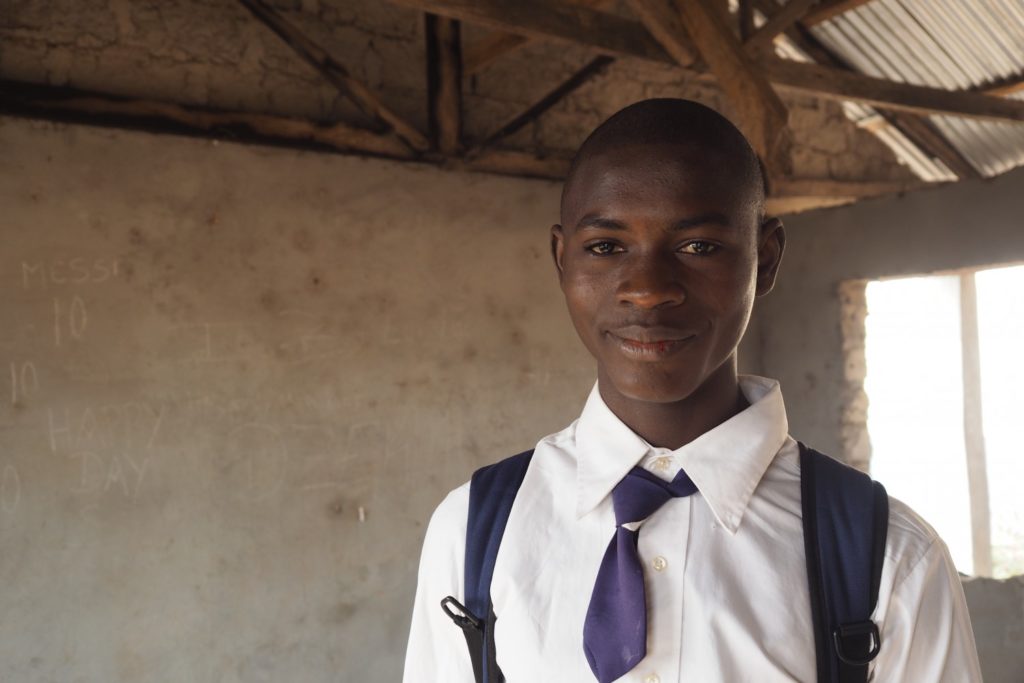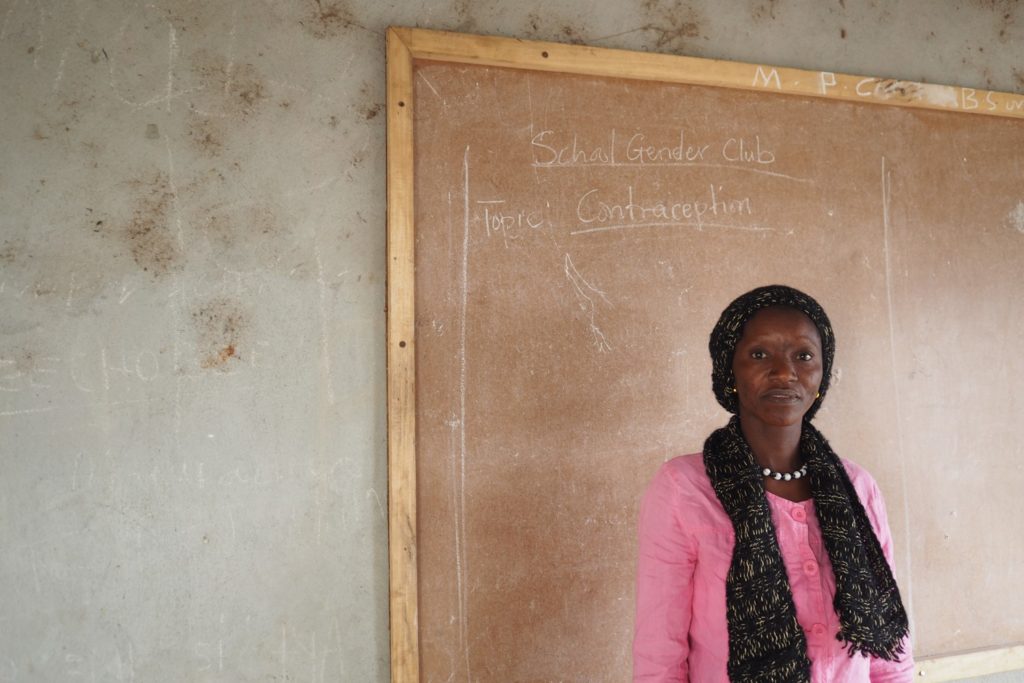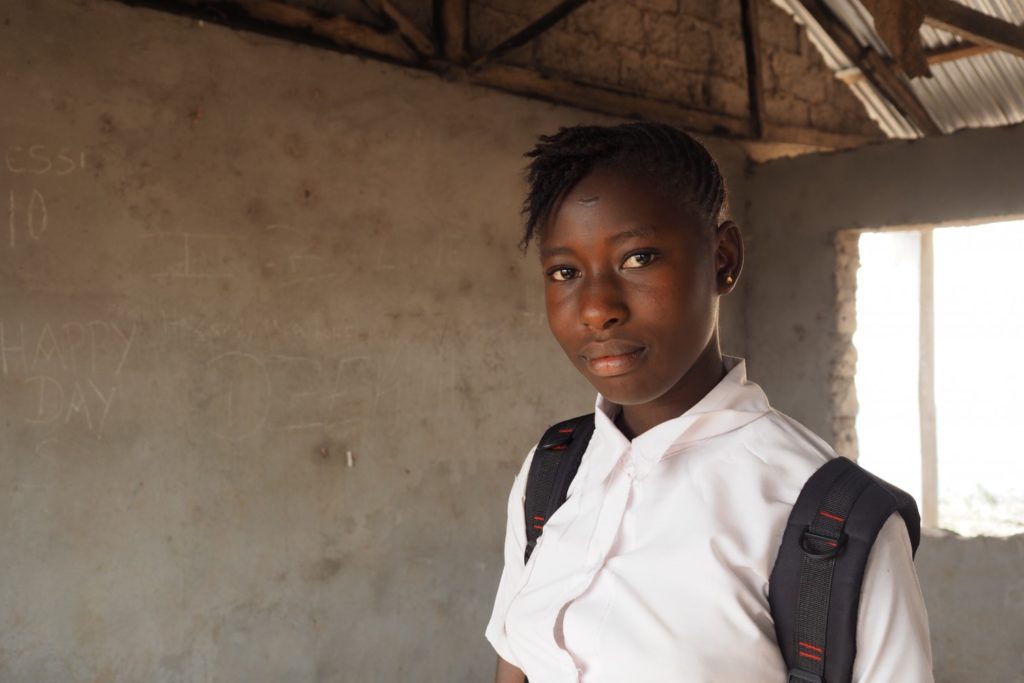
The gender club has made me bold. Because of the gender club I am able to stand in front of my colleagues and speak to them.
These are the words of 17 year old Augustine. He has been a member of his school gender club for 2 years, and in that time he has learnt to speak out on a range of topics about sexual health – from contraception to child marriage.

17 year old Augustine has been a member of the St Peter School Gender Club for 2 years
In Sierra Leone, speaking out against things such as unprotected sex, Female Genital Mutilation (FGM) or child marriage is often considered to be shameful, or even an attack of local culture. This is not unique to Sierra Leone – all around the world, women’s health and reproductive rights are taken less seriously, resulting in a lack of awareness and under resourced health services.
Despite this, the school children at St Peter Secondary School have a strong sense of pride at being able to speak out. There is no shame as they recite their knowledge on the pros and cons of different forms of contraception, and encourage others to visit the health centre if they need support. The club even holds a yearly party to celebrate what the students have learnt. Family members and local authorities are invited to come and celebrate with the children, and knowledge is tested in the form of fun quizzes and games.
Teachers like Margaret are the ones leading this incredible change. Working with Health Poverty Action’s staff in Sierra Leone, teachers develop the skills they need to facilitate the gender clubs, and to be role models and mentors to the students they teach. Students at St Peter Secondary School often come to Margaret with health or peer issues to receive confidential support and advice.

Margaret Kargbo, leader of the St Peter School Gender Club, and collaborator on this article stands in front of the board in her classroom
Twenty schools have now set up gender clubs across the districts of Karene and Bombali in Sierra Leone. Each gender club is made up of twenty students, ten girls and ten boys, who are selected by the club leader. The aim is to select students from a range of different age groups, academic backgrounds and peer groups, to ensure a representative cross section of children. These knowledgeable spokespeople then spread what they have learnt to their friends, families and communities.
Marian is a member of the St Peter School Gender Club. At just 13 years old, she is confident and outspoken.
This gender club helps us become strong, and teaches us how to speak to our companions about these [sexual health] issues. When I go out and meet my companions, I talk to them and advise them on teenage pregnancy, contraception, and other issues we discuss in the gender club. When I meet with my companions we sit together and discuss. The facilitators have taught us so many things I never knew before.

Marian is just 13 years old, but is already a confident and outspoken member of the school gender club
Students in the gender club are also encouraged to speak at whole school assemblies. They take it in turns to pick one sexual health topic to teach their peers about. The topics include sexual and gender based violence, FGM, early marriage, teenage pregnancy, sexually transmitted diseases and unsafe abortion.
This isn’t just spreading knowledge – it is breaking down taboos.
Everyone should have access to the information and resources they need to make reproductive choices freely for themselves, but one of the biggest boundaries to accessing these services is knowledge and trust. This is why we work with remote rural communities to make sure everyone has access to information about their right to health, and the services they are entitled to, spreading knowledge through community drama shows, radio debates, and gender clubs. We also work to build trust between communities and the health staff who serve them, which is particularly important in Sierra Leone, where a recent history of civil war and the Ebola epidemic weakened health services.
The impact on the community has been wide reaching. Club leaders and community members report that teenage pregnancy has fallen since the start of these clubs. There is also a much better awareness of sexual health issues in the community, and a growing confidence in health services. This is contributing to the increased attendance to pre and post-natal check-ups by pregnant women and mothers. Together, this community is helping tackle Sierra Leone’s high maternal, new-born and child mortality rates.
Enthusiastic and skilled young community members are taking charge of their own reproductive health and rights, whilst educating others, and encouraging discussion. Their community advocacy will have a huge impact both now, and for future change.
Article by Sorsha Roberts (Communications Officer at Health Poverty Action) with support from Margaret Kargbo (Lead facilitator of the gender club at St Peter Secondary school in Kamikwie, Sierra Leone). Funding for these school gender clubs, and our other sexual health work in Sierra Leone, has come from Comic Relief and the Big Lottery Fund (BLF).

